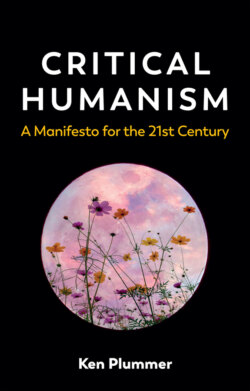Читать книгу Critical Humanism - Ken Plummer - Страница 32
The Call of Humanity: Only Connect
ОглавлениеOnly connect! That was the whole of her sermon. Only connect the prose and the passion, and both will be exalted, and human love will be seen at its height. Live in fragments no longer.62
‘Only connect!’ This was E. M. Forster’s famous pronouncement in his novel Howards End. What does it mean? In current times the very word, ‘connect’, has been taken over by digitalism. We speak of the culture of connectivity to indicate a world of platforms and the coding of human life.63 Much contemporary writing talks about ‘connectivity’ being through digitalism and machines. But this, most emphatically, is not what Forster meant. And nor do I. I want to reclaim the word to talk about human life, not digital life. Surely, if there is one idea that connects us all, it is that of ‘humanity’. It can help us ‘live [our lives] in fragments no longer’. It helps us bring together our fragile animality and the wider worlds of interconnected ‘other people’, ‘other species’ and ‘other things’, dwelling in time, space and the cosmos. Over and over again in the worldwide concern about Covid-19, the idea of humanity was been evoked to ‘bring us together’ and to make us conscious of our interdependence in the world and planet. Not to hear humanity’s call to ‘come together’ presents us with a clear and present danger.
Critical humanism sensitizes us to humanity as a narrative that can help bring things together. We can find many and various ways of achieving this connectedness64 linking the personal and political, time and space, mind and body. To give one illustration: the influential sociologist C. W. Mills argues for an important connection between the personal and the public: we need to bridge personal sufferings (and inner life) and public problems (and outer structural social problems). While personal suffering (a Rohingya refugee or a racial attack, for example) is endured as an intensely subjective experience, often in isolation, it ultimately needs to be connected to a wider (historical) environment. (There are more than 900,000 Rohingya living in camps in southeast Bangladesh; the Black Lives Matter movement arose to show that race attacks by the police are not isolated incidents; and there is, in the USA, a 400-year-old history of deep racism.)65
